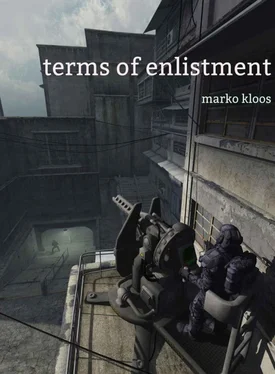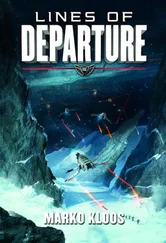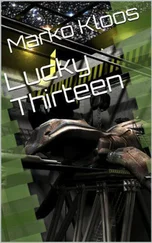I’ve spent all of my life in the PRC we leave behind, and if the Sino-Russian Alliance nuked the place right this moment, and I saw the fireball light up the night sky behind the shuttle, I wouldn’t feel a thing.
We arrive at the base at four o’clock in the morning.
The shuttle was airborne for four hours. We could be anywhere in the North American Commonwealth, from northern Canada to the Panama Canal. I don’t particularly care. All that matters is that we’re four flight hours away from PRC Boston 7.
When we step out of the shuttle, we are whisked off into a waiting hydrobus. As the bus leaves the shuttle station, I see that we’re in an urban area, but there are no high-rise buildings anywhere, and I can see snow-capped mountains on the horizon behind the buildings of the city. This place looks clean, orderly, neat—all the things a PRC isn’t. Out here, things are so different that it might as well be another planet.
The bus ride takes another two hours. We soon leave the clean streets of this unknown city behind, and the landscape outside is almost alien in its undeveloped state, like the surface of a strange and distant colony planet. I see low rocky hills and scrub-like vegetation that sparsely covers the hillsides.
Then we reach our destination.
The sudden transition into the military base is startling. One moment, we’re looking out onto the strangely barren landscape, the next moment we cross into a security lock that seems to have appeared out of nowhere. Just before the bus enters the lock, I can see miles of fencing stretching out into the distance.
We drive for another fifteen minutes, past rows of identical-looking buildings and artificial lawns. Finally, after many right-angle turns onto increasingly less busy side roads, we pull into a lot in front of a squat, unimpressive one-story building that looks like an oversized storage pod.
The doors of the bus open, and before any of us can contemplate whether we ought to stay in our seats or show initiative and get off the bus, a soldier comes up the stairs at the front of the bus. He is wearing camouflage utility fatigues. His sleeves are rolled up neatly, with crisp edges in the folds, and the bottom of the sleeve is rolled back down over the fold so the camouflage pattern covers the lighter-colored liner of the fatigue jacket. There’s a rank device on his collar, and there are many more chevrons and rockers on it than on the collar of the sergeant who accepted my enlistment papers back at the recruiting station. This soldier’s expression is one of mild irritation, as if our arrival has interrupted some enjoyable activity.
“ Now ,” he says.
“You will smartly step off this bus in single file. There are yellow footprints on the concrete outside. Each of you will step onto a pair of those footprints. You will not talk, fidget, or scratch yourselves while you do this. If you have anything at all in your mouths, it will come out and be left in the trash receptacle of your seat. Execute ,” he adds with a tone of finality, and then he steps back out without looking back, as if there is no doubt that we will do exactly as he says.
We get out of our seats and file out onto the concrete lot. There are rows of yellow footprints on the ground, and we each find a spot. When we’re all lined up in untidy rows, the soldier from the bus walks around to the front of our rag-tag group, straightens out the front of his fatigues with a crisp tug, and places his hands behind his back and his feet a shoulder’s width apart.
“I am Master Sergeant Gau. I am not one of your drill instructors, so don’t get too used to my face. I am just here to guide you through the first two days while we process you and prepare you to meet your platoon drill instructors.
“Now,” he says again, and the way he emphasizes that word makes it sound like he is ensuring more than just our attention, as if he wants to make sure we’re mentally and physically in the present moment.
“You are among the ten percent of applicants accepted into the Armed Forces of the North American Commonwealth. You may think that this makes you special in some way. It does not.
“You may think that, because you made the initial cut, we will put in a lot of effort to shape you into soldiers, and help you overcome your individual weaknesses. We will not.
“You may think that boot camp is something like that stuff you’ve been watching on the Networks. It is not.
“We will not hit or mistreat you. You may choose to stop following orders and instructions at any time. If you fail to obey an order, you will wash out. If you fail to make a passing grade on any examination or skill test, you will wash out. If you strike a fellow recruit or a superior, you will wash out. If you steal, cheat, or display a bad attitude, you will wash out. Any of your instructors has the absolute right to wash you out for any reason.
“When you wash out, nothing will happen to you. You will merely be put on a shuttle home. You will not owe any money, nor suffer legal penalties. We will dissolve your contract, and you will be a civilian once more.
“We wash out fifty percent of recruits in Basic Training, and a quarter of you will get killed or maimed in your enlistment period without ever collecting your service certificate at the end. There are forty of you standing on this spot right now, and only twenty of you at most will graduate Basic Training. Only fifteen of you will muster out in five years.
“If you find those odds troublesome, you may turn around and board the bus behind you once more. It will take you back to the shuttle port, where you will go back to your in-processing station. If my speech has served to change your mind about being in the Service, save yourself and your instructors the work and sweat, and step back onto the bus now.”
Sergeant Gau pauses and looks at us in anticipation. There is some rustling and shuffling in the ranks, and three of our number step out of line and walk back to the bus. With the first few stepping out, the more timid find the encouragement to do likewise, and four more no-longer-recruits step out of formation and amble back to the bus with hanging shoulders. I notice that none of them look back.
“Thank you, people,” Sergeant Gau calls after them. “And I mean that. It’s good to see that some folks still have the smarts to see when they’re about to grab the short end of the stick.”
Then he turns back to us.
“The rest of you are dumber than an acre of fungus, and I mean that, too. Now go through that door, single file, find a desk in the room beyond, and quietly wait for further instruction. Execute.”
The room is empty except for several rows of creaky desk chairs. We each take a chair. I count the empty chairs after everyone is seated; there are precisely as many chairs in the room as there were people on the yellow footsteps outside before the end of Sergeant Gau’s speech. There’s nothing but a black marker on each of the desks. Some of the recruits take the black markers and uncap them, which displeases Sergeant Gau when he enters the room.
“I didn’t say anything about picking up those pens. I said to find a desk and quietly wait.”
The scolded recruits hastily replace the markers on their desks. Some of them look at Sergeant Gau as if they expect the offense to be grounds for a wash-out already.
“Now you will pick up your pen and uncap it.”
We do as we are told.
“You will use the marker to write the following number onto the back of your left hand: One-zero-six-six.”
I write the number 1066 onto the back of my hand.
“This is your platoon number. You are Basic Training Platoon One-zero-six-six. You will commit your platoon number to memory.”
Читать дальше












